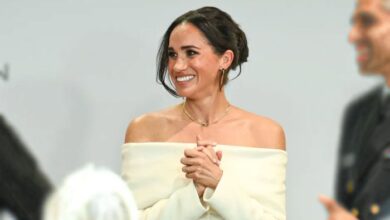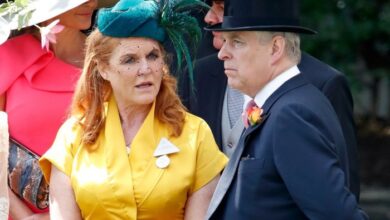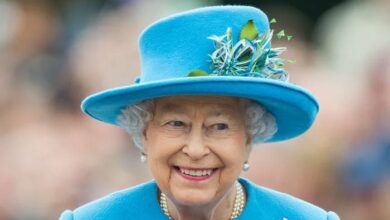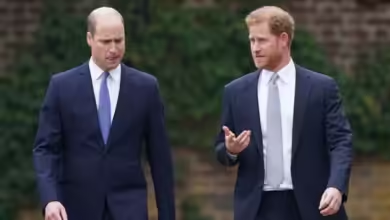Peter Morgan Isn’t Done With the Royal Family After Ending ‘The Crown’
The creator of the Emmy-nominated historical drama speaks on his future storytelling plans and the difficulty of pulling off six seasons of a prestige television show.
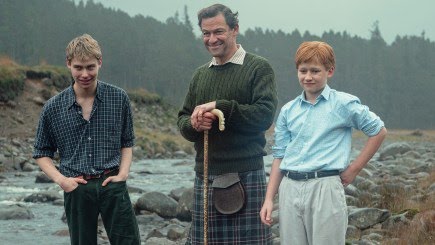
Netflix’s historical drama The Crown, created and written by Peter Morgan, has received its fair share of critiques and critical acclaim, including 18 Emmy nominations for its sixth and final season. Yet the one group of individuals who haven’t publicly voiced their opinion are the subject of the show itself: the royal family.
“I’ve heard that they love it, I’ve heard that they hate it, I’ve heard everything,” Morgan tells THR. “I’ve decided that until one of the members of the royal family tells me directly, in person, I won’t believe anything that I hear.”
Here, the showrunner talks about the difficulty of executing a prestige television show for six years and why there are still royal stories he might want to tell.
What did making six seasons of this show require of you?
What television has become is so much bigger than any of us could have predicted. I went into this almost without having ever really stress-tested how hard it is and how much work it is, and I was shocked, actually. But then, of course, it makes perfect sense. That thing that traditionally had been the $15 to $25 million movie is now that level [of television]. The way in which we made several of the movies that I’d done prior, whether it’s Frost/Nixon or The Queen or The Last King of Scotland, those movies were made no differently in terms of scale than an episode of The Crown. And then suddenly you’re committed to making 10 of those a season. And then another season of 10 to follow straight after. So it was both more intense and harder work than I predicted, and I think it’s only because the material was such a joy to write and it was such a joy to work on that I had the energy and the stamina to do everything that I did.
What was the biggest challenge in not repeating what you did in The Queen in telling Princess Diana’s story in part one of season six?
I had to give that a lot of thought because right from the beginning, when I was writing the story set in the 1950s, even that far out I was thinking to myself, “God, what’s going to happen if this show continues and I get to the 1990s, because I don’t want to repeat myself.” At the same time, I don’t think you can claim to have written a dramatized biography of Queen Elizabeth II without having that week in the aftermath of Diana’s death be a central part of it because, along with Aberfan [the 1966 mining disaster], it was one of the two conspicuous misfires in her [reign], and both for the same sort of reason: considering a nonemotional response as head of state more appropriate and then getting punished for it because of people wanting emotional guidance and leadership.
Initially, if it hadn’t been for finding Elizabeth Debicki, I’m not sure I would’ve [told the story] through Diana. I might have done it through the Al-Fayeds because I thought that seeing it from an outsider, racially, as it were, discriminated against, would feel more contemporary. I would have more to say about today and it would be a fresher take on it. But then, of course, Elizabeth Debicki showed up. So, in the end, I chose to do it as a mixture through the eyes of the Al-Fayeds and [Diana].
You always knew you wanted the series to end with Prince Charles’ wedding in 2005. Do you still stand by that decision? Do you foresee future iterations?
For the time being, I cannot imagine any circumstances in which I’d want to go further into the present, as it were, but at the same time, I don’t think I’m done with the subject. I might find some way of coming into it from a different way. If you go back in time, you always have that wonderful opportunity for metaphor. You can find a story in the past and tell that, and it [will] actually be a story about the present, but in camouflage. And that, I think, might be a more elegant way forward. To move forward from where I left the show off at the moment feels too soon.
How do you think The Crown has changed the TV landscape, and do you think there will continue to be a space for these prestige shows?
I can’t speak for the networks, and I can’t speak for the streamers in terms of what their appetite is for shows running to 60 episodes. I can speak from the creators’ point of view and say it’s a very, very hard thing to pull off and I’m constantly stunned that we did. The reason I think we managed to pull it off is because of the culture created on the show. It was just a beautiful place to come and do your best work. I can’t speak to the financial commitment that would have to be made by a streamer to replicate something of 60 hours [either], but I can’t see them doing it now, which is a great shame because these things are unique. They are like Proustian mega-novellas, the complexity and the time has compounded interest, and the amount of time you spend with people, the amount of time that’s needed in order to have the depth of the response. I would hate to see them go, but having done one, I do know how hard it is. And I wouldn’t blame anyone for stopping after two [seasons].
